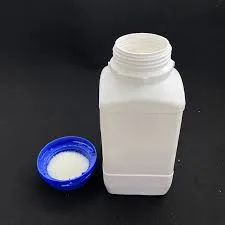Chemicals for Industrial Water Treatment Ensuring Quality and Safety
Water is a critical resource in industrial processes, serving various functions from cooling and heating to serving as a medium for chemical reactions. However, the presence of impurities and contaminants in water can affect product quality, equipment efficiency, and overall operational safety. To address these challenges, industries rely on chemical treatments to purify water and ensure it meets the stringent standards required for industrial applications. This article delves into the types, functions, and importance of chemicals used in industrial water treatment.
Types of Water Treatment Chemicals
The selection of chemicals for water treatment varies depending on the specific needs of an industrial facility. Key categories of chemicals include
1. Coagulants and Flocculants These chemicals are instrumental in the removal of suspended solids from water. Coagulants, such as aluminum sulfate (alum) and ferric chloride, destabilize particles in the water, allowing them to clump together. Flocculants then aid in the agglomeration of these larger particles, making them easier to remove through sedimentation or filtration.
2. Biocides To prevent microbial growth that can cause biofouling and corrosion, biocides are essential. Chemicals like chlorine, bromine, and non-oxidizing biocides (e.g., isothiazolinones) are commonly used to control bacteria, algae, and fungi in industrial water systems. Effective biocides ensure the longevity of equipment and enhance the safety of water used in production processes.
3. pH Adjusters Maintaining the correct pH is crucial for optimal chemical reactions and preventing corrosion. Acidic or alkaline additives, such as sulfuric acid or sodium hydroxide, are used to adjust the pH levels of water to the desired range. This helps optimize the efficiency of other treatment chemicals and protects equipment from damage.
4. Corrosion Inhibitors Industrial water often contains dissolved oxygen and other corrosive substances that can lead to equipment degradation. Corrosion inhibitors, such as phosphates and amines, form a protective layer on metal surfaces, thereby prolonging the lifespan of pipes, valves, and heat exchangers.
5. Scale Inhibitors Scale formation can significantly affect the efficiency of heat exchangers and cooling systems. Chemicals like polyacrylic acid and phosphonates prevent the deposition of scale-forming minerals such as calcium and magnesium. By keeping these minerals in solution, scale inhibitors ensure optimal performance of industrial systems.
chemicals for industrial water treatment

6. Defoamers Excessive foaming during industrial processes can impede operations and lead to equipment malfunctions. Defoamers, typically made from silicone or organic compounds, are employed to reduce foam generation, allowing for smoother processing.
Importance of Chemical Treatment in Industrial Water
The significance of chemical water treatment in industrial applications cannot be overstated. Firstly, it enhances the quality of water used in production, ensuring that it meets the required standards for various processes. Impurities such as heavy metals, suspended solids, and organic contaminants can adversely affect product quality and lead to costly recalls.
Secondly, proper chemical treatment extends the lifespan of equipment. By controlling corrosion, scaling, and biofouling, companies can reduce maintenance costs and decrease downtime, thereby increasing operational efficiency.
Moreover, regulatory compliance is a critical concern for industries, as many operations are subject to stringent environmental regulations. Chemical water treatment helps companies meet these requirements by ensuring that wastewater is treated before discharge, thereby minimizing their environmental impact.
Lastly, given the growing focus on sustainability, many companies are adopting advanced water treatment strategies that utilize eco-friendly chemicals. Innovations in this field, such as biosurfactants and green chemistry, offer safer alternatives that maintain efficacy while reducing environmental harm.
Conclusion
In summary, chemicals for industrial water treatment play a vital role in enhancing water quality, protecting equipment, and ensuring regulatory compliance. As industries continue to face challenges related to water quality and environmental stewardship, the strategic use of these chemicals will remain paramount in promoting safe and sustainable industrial operations. By investing in effective water treatment solutions, industries can enhance productivity, safeguard resources, and contribute to a more sustainable future.

